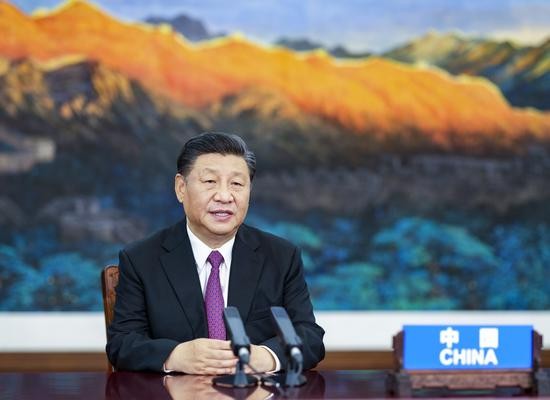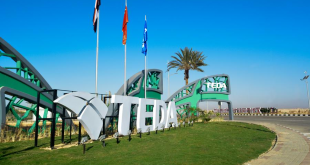By Gerald Mbanda

President Xi Jinping delivers a speech at APEC virtual meeting on Friday, July 16, 2021. [Photo/Xinhua]
On Friday, July16, Chinese president Xi Jinping expressed China’s resolve in the global fight against the COVID-19 pandemic as well as the determination to promote multilateralism. While speaking at an informal Asia-Pacific Economic Cooperation (APEC) virtual Leaders’ retreat, president Xi, called on APEC economies to strengthen solidarity and cooperation to overcome the impact of the COVID-19 pandemic and boost global economic recovery.
President Xi pointed out that China has already provided more than 500 million doses of COVID-19 vaccines to developing countries and plans to provide another $3 billion in international aid in the coming three years to support COVID-19 response, as well as economic and social recovery in developing countries.
As China makes the call for global cooperation in the fight against COVID-19 pandemic, rich countries have been repeatedly blamed for global vaccine apartheid. The Secretary General of UN Antonio Guterres, in early June, cautioned that, “The richest countries and regions are getting vaccinated more than 30 times faster than those with the lowest incomes. This vaccination gap is not just unfair; it threatens everyone.”
In a similar way, the Director-General of World Health Organization (WHO), Tedros Adhanom Ghebreyesus, pointed at the COVID-19 vaccine crisis as “a scandalous inequity” where just 10 countries have received 75% of all vaccines administered so far, while 0.3% have gone to lower-income nations, with the African continent receiving just 1%. Tedros also argued vaccine manufacturers Pfizer and Moderna to prioritize supply of vaccine to low- and middle-income countries, including through COVAX, a joint endeavor of the WHO, Gavi, the Vaccine Alliance, and CEPI, the Coalition for Epidemic Preparedness Innovations.
The WHO chief made the caution to western vaccine manufactures which are now focusing on producing and selling COVID-19 booster shots to rich countries, at a time less privileged countries are in critical shortage of first doses. “We will look back in anger and we will look back in shame if we don’t now move to use the increasing [vaccine] production capacity that is coming on line … to protect the most vulnerable, protect the frontline health workers around the world,” said Dr Michael Ryan, Executive Director, WHO Health Emergencies Programme.
The global vaccine inequality has become a tale of two worlds, the haves and the have nots. Even when rich countries have already vaccinated majority of their citizens, they are still hording excess vaccines when poor countries have no hope of getting at least 5% of their citizens vaccinated by the end of 2021! “The rich countries are not concerned by the suffering of the poor. In fact what we have realized since the outbreak of the COVID-19 pandemic is that China is almost the only country that has lead the global fight by helping countries in Africa and the rest of the world by sharing vaccines,” said an African international relations analyst.
COVID-19 is a global challenge that has affected to the global community in the 21st century almost in equal measure. It therefore requires global cooperation to overcome the pandemic irrespective of social, political and economic differences of all countries of the world. To win the global war against COVID-19 pandemic no country can act in isolation and therefore, global COVID-19 vaccine cooperation is not an option but a must as “nobody is safe until everyone is safe.”
Gerald Mbanda is a Researcher and publisher on China and Africa
For comments or opinion write to us on info@africachinareview.com
 Africa -China Review Africa -China Cooperation and Transformation
Africa -China Review Africa -China Cooperation and Transformation
